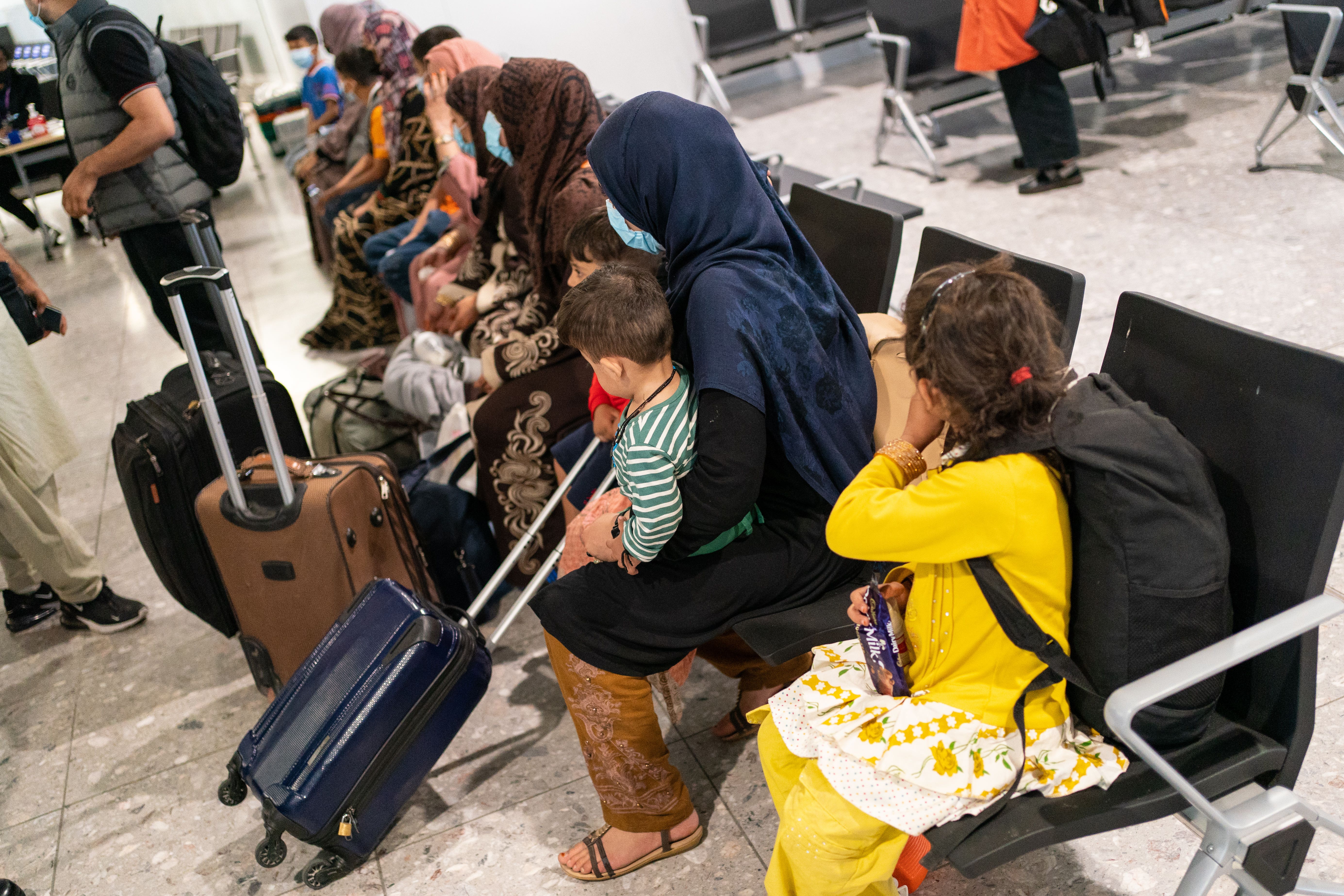Asylum seeker evictions must end – it’s a matter of honour, not just money
Editorial: It is not beyond the wit of the government to match labour supply and demand

It is difficult to understand what the government hopes to achieve by evicting some 8,000 Afghan refugees who are currently staying in hotels. Obviously they cost the taxpayer money, and the implications of their presence are sometimes misrepresented by those with sinister motives, causing concern in local communities.
It is hardly ideal from the asylum seekers’ point of view, either. They want nothing more than to work and make a future for themselves and their families. Yet summary eviction, with little chance of their finding alternative accommodation, will prove counterproductive, and promises to actually increase tensions by putting them in competition with others looking for housing. It is as if ministers were trying deliberately to stir up trouble: to be clear, that cannot be their serious intent, but it may well prove to be the entirely predictable result of their policy.
What is to become of these people? They are already presenting themselves, legitimately, as unintentionally homeless to local authorities, who lack the resources to help. The most likely outcome is that the Afghans, having been thrown out of one hotel by the Home Office, are then billeted in another by the council. Alternatively, they may find space in a B&B. The net saving to the public purse will be minimal, and the less settled people are, the less chance they will have of acquiring skills for employment – an economic contribution that is desperately required given the present acute shortage of labour. Living in temporary digs – or worse still, sleeping rough – is bad for their health and for the wider community.
It raises the issue of the service that those settled here under the various official Afghan schemes have already rendered to the UK. They have worked for the British armed forces and other British agencies during the long and cruel conflict in Afghanistan. Others, albeit not eligible for resettlement under the narrowly defined criteria of these schemes, fought in the Afghan forces against the Taliban and al Qaeda, and alongside British and other allied service personnel. That includes the Afghan pilot whose cause has been championed by The Independent. He is still in hotel accommodation, though his family remains in hiding in Afghanistan, and his pleas for asylum have been neglected.
As the Labour MP Dan Jarvis, a former soldier, reminds us: “These are not economic migrants. These are Afghans who placed themselves in mortal peril to serve alongside British forces in Afghanistan, and they did so at our request. These are people to whom we’ve given an invitation to come to our country. The notion that people are being forced to become homeless is just shameful.”
Sir Iain Duncan Smith wants veterans' minister Johnny Mercer to have “one more go” at fixing the issue, saying “we owe them”. And Lord West, the former head of the navy, reminds us that Britain “has a debt of honour to those who risked their lives - and those of their families - to assist our men and women who were fighting in Afghanistan.”
It is a matter of honour, then, as well as money. History shows how a nation that is determined to honour its debts to those who fought alongside and with it in its hour of need, and who then found themselves in exile, can find that debt repaid many times over. The “boat people” who fled Vietnam after the collapse of America’s war are just one example of how ties forged in war can remain just as strong in peacetime.
The government, which has hardly covered itself in glory since the chaotic retreat from Kabul in 2021, should suspend the evictions programme and instead work with every refugee to give them the start they need, as indeed they should for anyone who finds themselves destitute. The work is there to be done, and businesses are desperate for staff; the Afghans want to work and to become economically secure.
It is not beyond the wit of the government to help match supply and demand. There is no good reason to force anyone onto the street.



Join our commenting forum
Join thought-provoking conversations, follow other Independent readers and see their replies
Comments